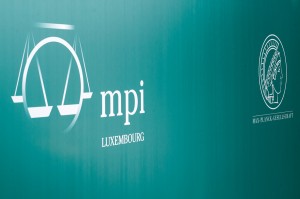Three New Papers of Professor Veerle Van Den Eeckhout
Professor Veerle Van Den Eeckhout , who teaches private international law at the Universities of Antwerp and of Leiden, has just published three new papers on SSRN.
The first one is entitled “The Instrumentalisation of Private International Law: Quo Vadis? Rethinking the “Neutrality” of Private International Law in an Era of Globalisation and Europeanisation of Private International Law”. The abstract reads as follows:
Private International Law is known as a very abstract, legal-technical and inaccessible discipline. Yet it is striking that PIL issues are conspicuously often interwoven with a number of heated, topical socio-legal debates, see for example 1) the debate on transnational corporate social responsibility, 2) the debate on posting of employees from Eastern to Western Europe, 3) the debate on residency and social-security entitlements of foreigners based on family relationships. Although at first glance the role of PIL in discussions about how these subjects should be regulated may seem rather modest, on further consideration it turns out to be crucial how the PIL questions that can be recognised are (or are not) identified and addressed. PIL is a “silent force”. If one looks closer, it is clear that PIL often even functions as a hinge between legal branches in these debates – e.g. between migration law and family law. But scholars – both PIL-lawyers and lawyers from other disciplines – have, so far, essentially left unexplored the PIL-issues of these debates.
Meanwhile, recent developments show that PIL is, occasionally, “instrumentalised” in a policy-related way, both by European and national authorities. There are, for example, tendencies on a Dutch national level to make PIL subservient to migration policy, ultimately transforming PIL into an instrument of restrictive migration policy. PIL could, thus, function as the “Achilles heel” of the legal protection of migrants. In several areas, there is pressure on PIL “from outside”. The question arises how the phenomenon of instrumentalisation of PIL – in its various forms – must be valued from the perspective of PIL: the PIL of European countries has of old been set up as a neutral reference system; the classical PIL paradigm implies that, independent of any legal political consideration or policy objective, the law applied to an international relationship is the law most closely connected to that legal relationship. Recognition of ongoing dynamical developments in the sense of instrumentalisation of PIL c.q. attempts to instrumentalise PIL thus raises a number of fundamental questions in respect of essential characteristics of PIL and the interaction of PIL with other branches of law: an analysis of the “instrumentalisation” of PIL requires a) research into the foundations of PIL b) as well as research into PIL’s “hinge-function”. Both where it concerns situations governed by European PIL rules and where it concerns situations that are not (yet) governed by European PIL rules, the question arises what position PIL should take in the forces at play and to what extent PIL can or should still adopt a “neutral” position. Could PIL be modelled, for example, into an instrument in the fight against international environment pollution, or into an instrument to guarantee labour protection?
In this project, all three above-mentioned debates will be analysed as “case-studies”. The project thus includes several broad and complex themes, all of them with major international relevance and national relevance for each of the EU-countries, in a context of globalisation, in order to make it possible to come to a general, over-all view: the overall ambition of the project is to arrive – through the thorough analysis of these cases and the exploration of future scenarios for each of them – at more synthetic insights on a) the essential characteristics of PIL itself and b) the characteristics of PIL in its hinge-function, in interaction with other disciplines. There is at present a very great need for a further and thorough study of each of the case studies as such, but as the case-studies have been well-selected, it will ultimately be possible to achieve a theoretical model and a typology.
Click here to download.
Two other, shorter papers entitled “The Role of Private International Law in Achieving Social Justice” and “New Possibilities for Argumentation in International Labour Law and Corporate Liability Coming Up?”, can be downloaded clicking here and here.
